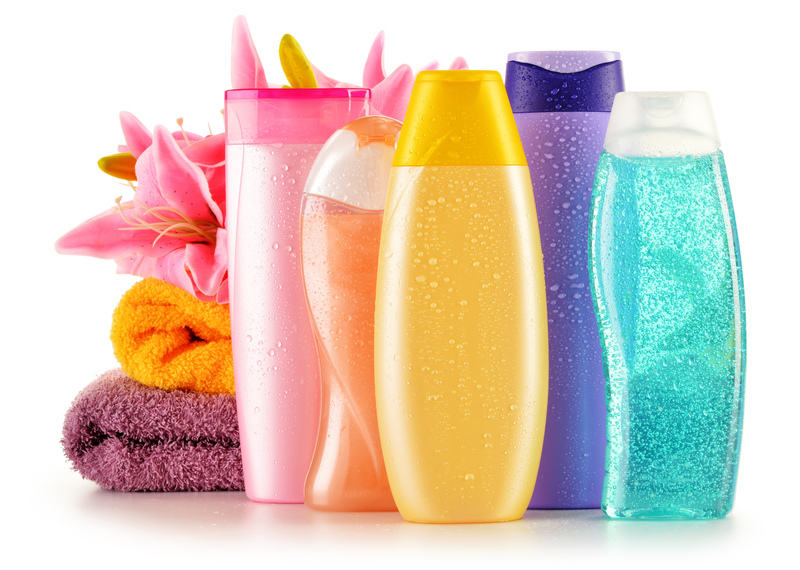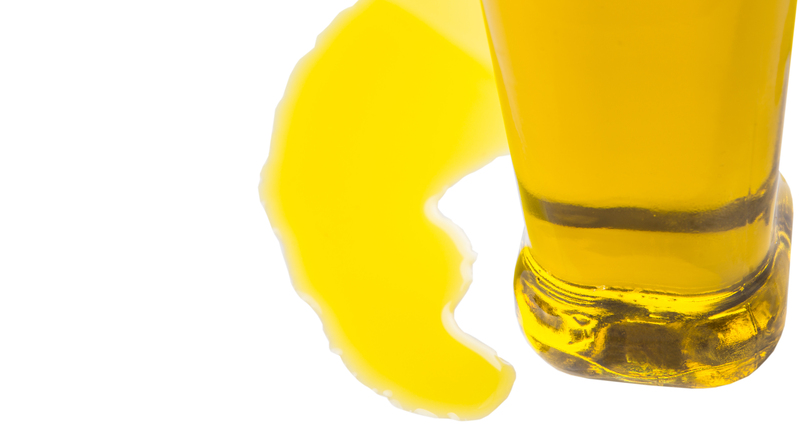Tips for Eliminating Damp Smells Naturally
Posted on 04/06/2025
Tips for Eliminating Damp Smells Naturally
Damp odors can take over your home or any indoor space, creating an unpleasant environment and sometimes even signaling underlying problems like mold growth. These musty smells not only affect the comfort of your living space but can also impact the health of you and your family. Many people resort to chemical air fresheners to mask these lingering scents, but there are effective, eco-friendly ways to banish them for good. In this comprehensive article, you'll discover actionable tips for eliminating damp smells naturally, restoring freshness to your home safely and sustainably.
Understanding Damp Smells: Causes and Concerns
Before diving into solutions, it's essential to understand what causes damp smells and why addressing them naturally is beneficial. Persistent dampness is typically the result of excess moisture within your home, often due to poor ventilation, leaking pipes, rising damp from foundations, or water ingress from roofs and windows. When moisture becomes trapped, it creates the ideal breeding ground for mold, mildew, and bacteria--the main culprits responsible for musty scents.
- Mold and mildew: Thrive in moist, dark environments and release spores that create that infamous musty odor.
- Water damage: Wet carpets, walls, or furniture can harbor lingering scents long after the area dries out.
- Poor ventilation: Stale, humid air does not circulate properly, encouraging damp smells to persist.
Ignoring these odors is unwise. Not only do musty smells create discomfort, but they may also indicate hidden problems and trigger allergies or respiratory issues. That's why it's crucial to address both the source and the scent, using natural methods that won't introduce harsh chemicals into your home.

The Benefits of Natural Odor Elimination
Why choose natural remedies for getting rid of damp smells? Here are some key advantages:
- Healthier environment: Chemical deodorizers may contain volatile organic compounds (VOCs) that worsen indoor air quality and contribute to headaches, respiratory irritation, and more.
- Eco-friendly: Natural products are generally biodegradable and reduce your environmental footprint.
- Safe for families and pets: Natural solutions are less likely to cause irritation or harm curious children and pets.
- Cost-effective: Many natural remedies involve items you already have in your pantry or can acquire inexpensively.
By following these eco-friendly methods, you can restore freshness without resorting to harsh chemicals or artificial scents.
Tips for Eliminating Damp Smells Naturally
1. Find and Fix the Source of Moisture
No natural solution will be truly effective unless you tackle the root cause of dampness. Inspect your home for water leaks, condensation, and inadequate ventilation. Some proactive steps include:
- Check for leaks: Pipes, appliances, roofs, window seals, and basements are common problem areas. Repair any issues promptly.
- Improve ventilation: Use exhaust fans in kitchens and bathrooms, and open windows regularly to promote air exchange.
- Install dehumidifiers: Natural or electric dehumidifiers help maintain healthy humidity levels, especially in basements or damp rooms.
- Dry wet items quickly: Wet carpets, towels, or laundry should not sit unused. Hang or dry them as soon as possible to avoid odors.
2. Use Baking Soda: The Classic Odor Neutralizer
Baking soda is one of the best natural ingredients for eliminating musty smells. Its absorptive properties neutralize odors rather than just masking them. Here's how to use it:
- Sprinkle on carpets, rugs, or upholstery: Leave for several hours or overnight, then vacuum thoroughly.
- Place open containers around the room: Set small bowls of baking soda on shelves, in closets, or near problem sources.
- Add to laundry: Mix baking soda with your usual detergent to refresh musty towels or clothing items.
*Tip: For extra effectiveness, replace used baking soda regularly--about once a month induces continued freshness.*
3. Harness the Power of White Vinegar
White vinegar is a safe, natural disinfectant and odor killer. Unlike air fresheners that mask scents, vinegar neutralizes and absorbs bad smells. Here's what you can try:
- Spray and wipe surfaces: Fill a spray bottle with one part white vinegar and one part water. Mist affected areas, then wipe thoroughly with a clean cloth.
- Deodorize fabrics: Lightly spritz soft furnishings, curtains, or musty clothing with diluted vinegar, then air dry.
- Leave bowls out overnight: Place bowls of white vinegar in rooms with persistent odors--allow them to sit overnight to absorb musty air.
*Warning: Vinegar has a strong smell itself, but it dissipates quickly, taking undesirable scents with it.*
4. Leverage Natural Air Circulation
Proper airflow is essential to eliminating damp smells naturally. Stale, humid air encourages musty odors and mold growth. Here's how to encourage natural air movement:
- Open windows and doors: Cross-ventilation (opening two or more windows) draws in fresh air and pushes stale air out.
- Use fans: Position portable fans to move air through damp-prone spaces.
- Hang clothes and textiles outside: Sunlight and breezy air naturally refresh fabrics and kill bacteria.
Regularly airing out rooms--especially basements, attics, and bathrooms--will help break the cycle of mustiness.
5. Activated Charcoal: A Powerful Odor Absorber
Activated charcoal has impressive odor-absorbing qualities, making it a top choice for tackling lingering damp smells. Simply place small pouches or bowls of activated charcoal in affected areas--closets, shoes, cabinets, or corners with little airflow. Replace charcoal every few weeks for optimal performance.
Activated charcoal is available in loose form, sachets, or bags specifically designed for home odor control.
6. Freshen With Essential Oils
While essential oils don't neutralize odors in the same way as vinegar or baking soda, they add a pleasant, natural fragrance that complements other steps in your odor-elimination routine. Some oils also have antimicrobial properties that deter mold and bacteria growth:
- Tea Tree Oil: Antifungal, excellent for problem mold areas when diluted and sprayed.
- Lemon Oil: Refreshing citrus scent, known for its antibacterial action.
- Lavender Oil: Calming and soothing, with mild antibacterial qualities.
- Eucalyptus Oil: Strong, invigorating scent; effective at cutting through musty odors.
To use, add a few drops to a diffuser, blend with water for a room spray, or place cotton balls with oils in corners and closets.
7. Houseplants: Natural Air Purifiers
Many houseplants are natural air cleansers, helping to reduce damp smells by absorbing toxins and increasing oxygen. Try placing the following plants in damp-prone spaces:
- Boston Fern: Thrives in humid conditions and removes pollutants.
- Spider Plant: Easy to grow and great at improving air quality.
- Peace Lily: Absorbs mold spores and neutralizes odors.
- English Ivy: Well-known for filtering mold from the air.
*Houseplants not only tackle musty odors but make your space look and feel fresher and more welcoming.*
8. Regular Cleaning Routine
Consistency is vital when it comes to naturally banishing damp smells. Incorporate these cleaning habits into your routine:
- Wash curtains and soft furnishings regularly: These trap and hold odors over time.
- Clean drains and sinks: Stagnant water and debris can foster mildew.
- Vacuum with a HEPA filter: Helps reduce mold spores and dust that contribute to musty air.
- Clear clutter: Piles of boxes or old magazines can trap moisture and block airflow.
Staying on top of household chores helps stop damp odors before they start.
Natural Prevention: Keeping Musty Smells at Bay
Once you've removed damp odors, prevention is key to ensuring your home stays fresh and welcoming:
- Monitor humidity: Invest in a hygrometer to ensure indoor humidity stays under 60%. Ideal range is 30-50%.
- Promptly dry spills: Never let water pool or soak into fabrics or surfaces.
- Seasonal deep cleaning: Pay special attention to damp-prone zones during rainy or humid seasons.
- Store items off the floor: Especially in basements and attics, keep belongings on shelves or pallets.
- Consider natural deodorizers: Keep bowls of baking soda, charcoal, or essential oil sachets in closed spaces.

When to Seek Professional Help
While these natural tips for eliminating damp smells work wonders for minor or occasional odors, some cases require a professional touch. If you spot extensive mold growth, water damage, or persistent musty odors that linger despite your best efforts, contact a licensed mold remediation specialist. Stubborn problems may indicate hidden damage that only an expert can properly assess and address.
Conclusion: A Naturally Fresh, Healthy Home
Getting rid of damp, musty smells doesn't have to involve harsh chemical sprays or expensive solutions. With the above natural methods for eliminating damp smells, you can create a fresher, healthier, and more enjoyable indoor environment while protecting your health and the planet. Focus on addressing moisture at its source, increasing airflow, and using powerful natural deodorizers like baking soda, vinegar, and activated charcoal. Complement your routine with pleasant scents from essential oils and houseplants, and keep up with regular cleaning to prevent musty odors from returning. With these comprehensive and sustainable strategies, you can confidently say goodbye to damp smells and hello to a revitalized, inviting home.
Now that you know the best tips for eliminating damp smells naturally, which will you try first?








